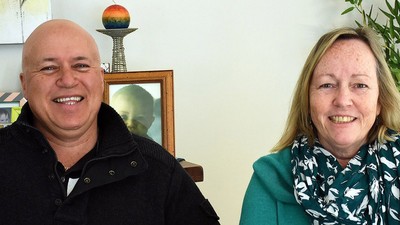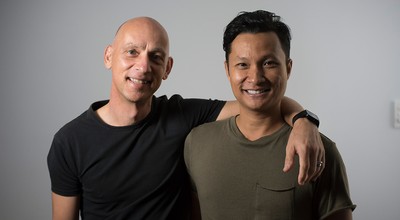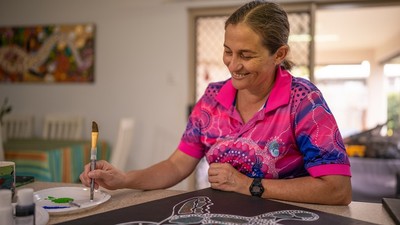Single. Partnered. Gay. Straight. Young. Senior.
If you have a desire, and the capacity, to provide a safe, respectful, caring environment for children, and want nothing more than to welcome children into your home and life, you can become a foster carer.
While there are some boxes that need to be ticked, the most valuable attributes you will bring is not the size of your home, the length of your CV, or your relationship status.
Life Without Barriers wants foster carers who will bring security, stability, respect and joy into children’s lives.
It’s that simple.

“We're only in our 50s so we've got plenty of life to live and love to give.”
Colin and Andrea, married with kids, caring for children with complex needs.

“While we were doing [Life Without Barriers] training we met with other same-sex couples - so we're not the only gays in the village!”
Sophiaan and Chris, married, no kids, providing long-term care for children with trauma and behavioural challenges.

“I think I was more worried than I needed to be because it just blended” Karmen said about telling her two adult daughters she wanted to be a carer.
Karmen, single, adult kids, provides short and long-term care.
Aboriginal & Torres Strait Islander foster carers
To ensure children maintain connections with their country, kin and culture, we need Aboriginal & Torres Strait Islander foster carers for Aboriginal & Torres Strait Islander kids.
Could you be a carer?
Take the foster care self-assessment. It only takes minutes to find out if foster care is something you could do.
Take the quizBecoming a foster carer
Carer checklist
About you
- Over 18 with relevant life experience (In some states and territories you may need to be over 21 or 25)
- From any culture, ethnicity, faith, sexuality or gender identity/expression
- Well and healthy
- Happy to undergo background checks
About your home and family
- With or without children
- Have a stable home with available space
- Everyone active and willing to be involved with fostering
- Happy to undergo background checks
I'm ready. What's the process for becoming a foster carer?
Applications to become a foster Carer take up to 12 months, but don't let that put you off. We make sure Foster Carers have the right training and support in place. At Life Without Barriers, we also take time matching the right foster carer with the right child or young person.
If you want to understand more about foster care and the application process, you can attend an information session either online or in person in your state.
Step 1: Make an enquiry
You can speak to one of our specialist team by contacting us on 1300 592 227 or at carers@lwb.org.au. Alternatively, you can submit the online form below and one of our team will be in touch.
Step 2: Let’s talk
One of our team will call to talk you through the process in more detail. During this time, you will learn more about the needs of children in care and the role of a foster carer. This will help you decide if fostering is right for you and if now is the right time. If you feel ready to progress further at this stage, we will organise a phone interview to chat more about your suitability and how fostering might work for you.
Step 3: Home Visit
We’ll link you with your local carer team who will organise a home visit or organise a group information session for you to attend. During the home visit, we make sure you can provide a safe place for a child or young person to stay and provide you with some paperwork to take the next steps.
Step 4: Training
If you chose to apply, you will participate in a workshop-style training program to help you understand and prepare for your role as a foster carer. These programs are a great opportunity for you to meet other applicants and experienced carers, and learn from their experiences.
Step 5: Assessment
During the carer assessment process, an assessor will visit you several times in your home and interview all members of your family to ensure fostering is a good fit for everyone. We’ll explore your life experiences, and the important carer attributes to ensure children in care have a safe and supportive environment.
Step 6: Approval
If the assessment shows you are a good fit for foster care, you will become an approved foster carer. Together with our assessor, recommendations will be made about the types of care, needs of children and number of children you’d be best placed to care for. This will help us make a good match with children needing care.
Congratulations!
Our care teams will look after you with extra training, and connect you with our Caring Community whilst we look to make a good match with children needing your care. Your journey with us doesn’t end there. Life Without Barriers are with you the whole way and you will receive ongoing support and training from our team over the whole of your caring journey.
Keen to learn more? Get in touch today.
We’re sure you have questions, and our team is waiting to answer them. You can contact us today and we will come back to you as soon as possible.